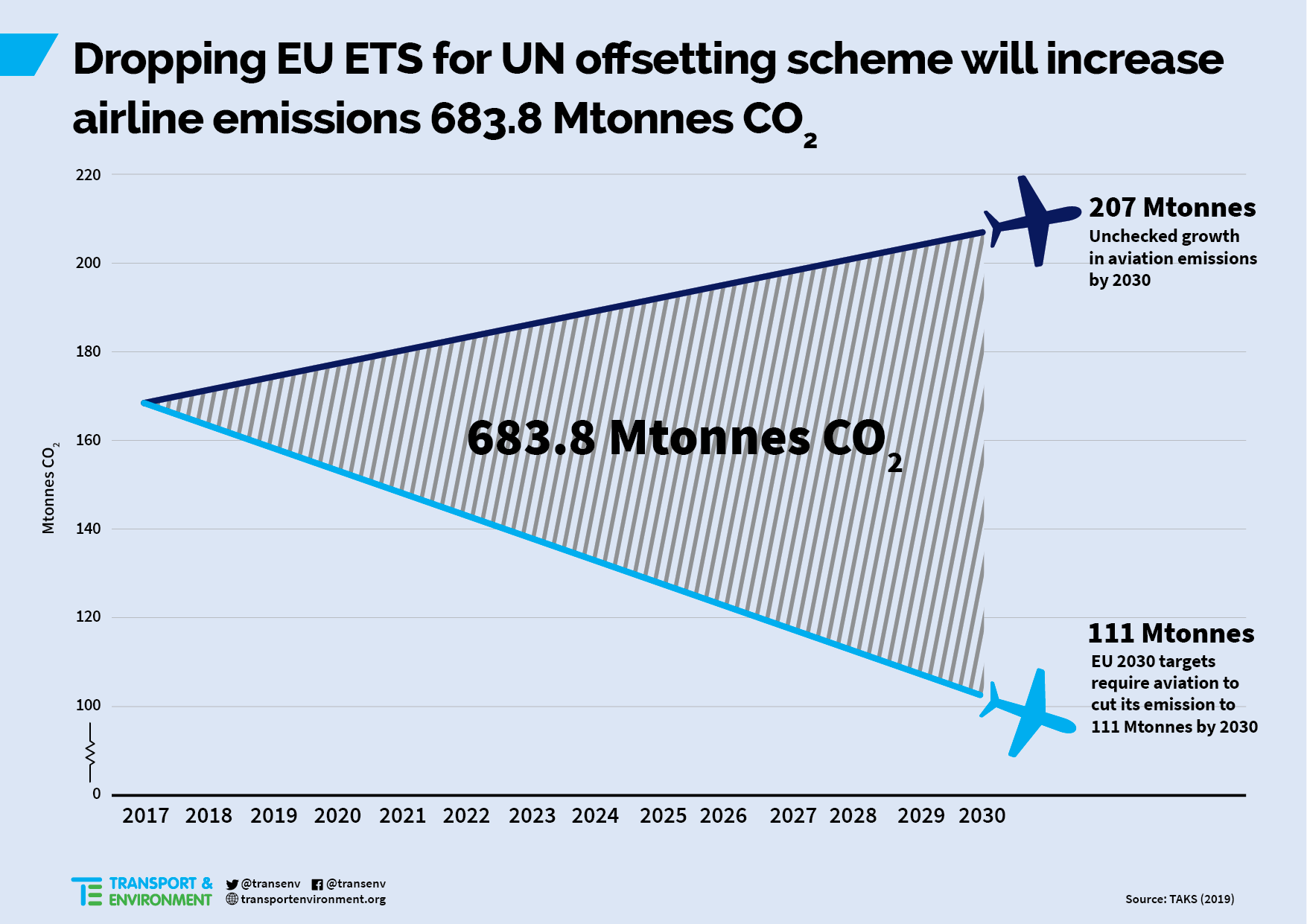
Interested in this kind of news?
Receive them directly in your inbox. Delivered once a week.
Right now the EU emissions trading system (ETS) requires airlines to pay for emissions from all flights within Europe, making it one of the few measures in place globally to tackle aviation emissions. But this week ICAO’s global assembly will vote on a resolution obliging the EU to abandon this and all other regional measures to reduce the climate impact of flying, including ticket taxes and potential fuel taxes.
Andrew Murphy, aviation manager at T&E, said: “Is the final act of EU president Juncker and Commissioner Cañete to hand over sovereignty of the EU’s airline emissions to a potemkin UN scheme? Von der Leyen will start the job powerless to regulate Europe’s fastest growing source of greenhouse gas emissions. EU governments must resist this in Montreal this week.”
If ICAO succeedes, airline polluters in Europe would only be subject to Corsia, which allows them to buy carbon offsets that pay for emissions reductions elsewhere so they can continue growing theirs. T&E said that the use of carbon offsets, which already have a chequered history, will prevent the global economy from reaching net zero emissions by 2050 at the latest, which is required to avoid catastrophic climate change.
Andrew Murphy concluded: “The UN offsetting scheme will allow airlines to go on growing their emissions while paying others for cheap offsets. In a world where every sector needs to reach zero emissions, the sums don’t add up.”
The ICAO assembly, which will ask the EU to give up its regional action to combat airline emissions, starts tomorrow in Montreal. EU countries can still file a reservation that will ensure it can go on regulating aviation pollution at home. But, so far, some EU governments – led by France and Italy – seem happy to outsource their responsibility to the UN scheme.
Flying is one of the fastest growing sources of greenhouse gas (GHG) emissions and the most climate-intensive form of transport. Aviation emissions have more than doubled in the last 20 years and the sector is responsible for an estimated 4.9% of man-made global warming. If international aviation was a country, it would rank as a top-10 emitter globally. In the US, airlines are increasing their emissions much faster than they are boosting fuel efficiency, according to a study released earlier this month. [2]
Notes to editors:
[1] The TAKS consultancy, commissioned by T&E, analysed the impact on airline emissions within Europe of implementing Corsia – with its weaker target and use of offsets – in a manner which replaces existing climate measures for European aviation.
[2] International Council on Clean Transportation, CO2 emissions from commercial aviation, 2018 (2019).
https://theicct.org/publications/co2-emissions-commercial-aviation-2018
Read more:
T&E report: Why ICAO and Corsia cannot deliver on climate


